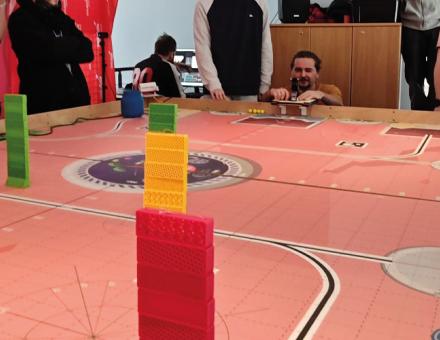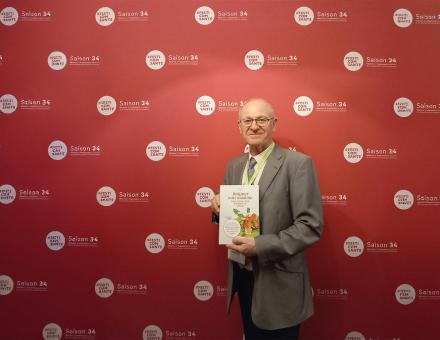A case study! The 2nd year Bachelor Environment and Sustainable Development students applied the module "Understanding and applying company regulations" by exploring waste management on the UniLaSalle Rennes campus. How do you get the school's staff involved in sorting waste? Here's how.
A module combining theory and practice to understand and apply waste management regulations in the workplace
From January 1, 2024, source separation of biowaste (biodegradable waste) will be mandatory for all businesses. But before adopting this change, a diagnosis of the existing sorting system is necessary. The Bachelor students took up the challenge at school, under the guidance of Lise Swertvaeger, their waste management teacher.
The teaching module is divided into 2 theoretical sessions, with the study of regulations and analysis of practices through sources such as Légifrance, ADEME or specialized press articles in Actu Environnement or Déchets Infos.
This was followed by 4 tutorials aimed at :
- Create a customized diagnostic grid for their school
- Tour the school and make an inventory of the types of waste and garbage cans available to students and employees.
- Draw up an action plan
- Draw up discrepancy sheets between sorting instructions and reality: are people disposing of their waste correctly?
Two steps remain to be taken:
- Meet with waste collection service providers and
- Create an awareness-raising module for all school staff.
Objective: to put into practice what has been learned and transfer it to apprenticeships
Bachelor Environment and Development students (Bac+3) follow the apprenticeship program from the 2nd year. These real-life case studies provide an opportunity to reflect on and create reproducible tools for effectively diagnosing waste management in their current apprentice company. This added value ensures that these "field" profiles are future professionals in touch with current regulations and the needs of companies and local authorities.






